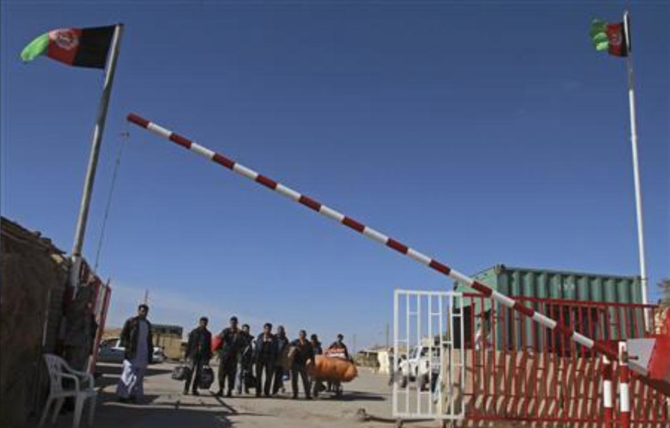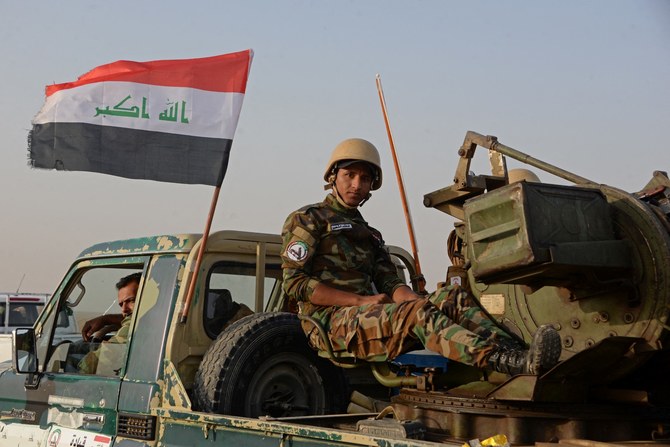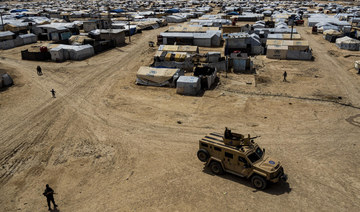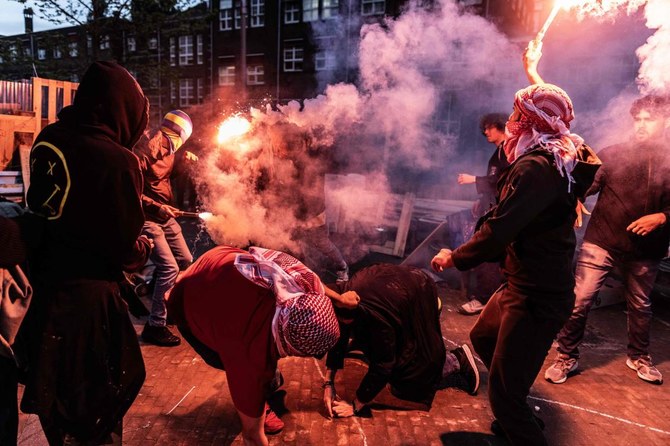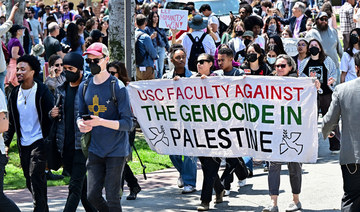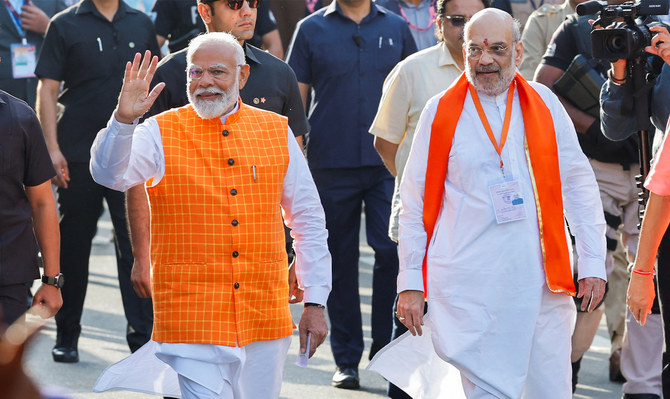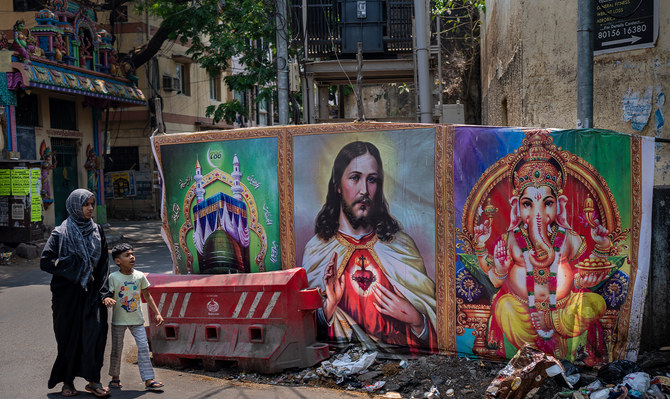KABUL: An Afghan government delegation traveled to Iran on Sunday amid increased tensions between the two countries.
Bilateral relations have been especially strained since May 1, when 13 Afghan migrants drowned after they were reportedly coerced to cross a river at gunpoint by Iranian forces.
In the second incident, which took place in the Iranian city of Yazd on June 5, three Afghans died after police opened fire on a vehicle they were traveling in. Police said they shot at the vehicle because it had failed to stop for a routine check.
“The goal of the trip is to address the unpleasant latest incidents, finding ways to prevent its repetition, strengthening and broadening of all-sided cooperation,” the Afghan Foreign Ministry said in a statement.
The delegation, led by Foreign Minister Haneef Atmar, also comprises officials from five other government bodies.
In the first incident the migrants had entered the country illegally and were part of a group that included children. In extensive interviews with Arab News, survivors and officials from Herat province, where most of the migrants came from, spoke about being subjected to torture and beatings by the border guards.
“The main agenda of the team’s discussions with Iranian authorities, no doubt, will be the issue of Afghan refugees and how we can solve it at the level of governments,” Javid Faisal, a spokesman for President Ashraf Ghani’s National Security Adviser, told Arab News on Sunday.
Ghani has come under fire from lawmakers and ordinary Afghans who consider the government’s response to the killings as too “soft.”
It gained momentum with the summoning of Kabul’s envoy by Tehran following anti-Iranian protests in Afghanistan and by Afghan refugees living in the West last week.
Placards with images of Iranian leaders were set alight, while a group of protesters threw red ink at the entrance of Iran’s Kabul embassy, prompting Tehran to summon the Afghan envoy on June 14.
The move elicited an angry response from Iran, with its Foreign Ministry spokesman saying last week that it had warned the Afghan envoy “that such actions, insults and offenses are intolerable.”
Kabul failed to respond to the summoning of the Afghan envoy and Iran’s subsequent warning to him, drawing criticism from the public and lawmakers.
Analysts and lawmakers said Kabul’s silence was because of its “isolation in the region” and because it did not want to “jeopardize its relations” with Iran, which it relies on for much-needed imports.
Iran replaced Pakistan as Afghanistan’s main trade partner last year, according to lawmakers who put the volume of imports from Iran to $2 billion in 2019.
Meanwhile, the US Embassy said Saturday that Washington sided with Afghan migrants who had been “abused, tortured and killed” by Iranian authorities.
Experts said the stance was because of Iran’s global reputation.
“America has always complained about Iran’s human rights reputation and is an enemy of Iran, has imposed long and tough sanctions against it,” Taj Mohammad, a Kabul-based analyst, said, adding that the regional problem was also a “good opportunity” for Washington.
“It is obvious and natural that the US has troops in Afghanistan and would want to either defend Kabul or slam Iran for the incidents, good opportunity for it to do so.”
Wary neighbors Iran and Afghanistan have had an uneasy relationship in recent years, with Kabul accusing Tehran of using Afghan Shiite migrants to fight proxy wars in the Middle East, as well as providing cash and arms to Taliban insurgents fighting the Afghan government and US-led troops in Afghanistan.
Iran has been wary of the presence of US troops in Afghanistan and considers them a threat to the Islamic Republic.
With its economy weakened by increasing US sanctions and the spread of COVID-19, lawmakers believe Tehran no longer wants to host more Afghans fleeing war and poverty. But others thought that the migrant deaths were part of a “deliberate policy” by Tehran to deter more Afghan migrants from going to Iran.
“One probability behind the two incidents is that Iran would like to pass on a message to illegal Afghan migrants wishing to travel there that: ‘Look if you want to come here without document, you will end up in a situation that these people suffered, you will be killed’,” lawmaker Nazifa Zaki told Arab News.
In addition records shared by the Health Ministry showed that, as of Sunday, 29,000 Afghans had tested positive for coronavirus in the country, after the disease was first brought in by a group of migrants returning from Iran.
However while the death toll is 9,507 in Iran, fatalities from the virus in Afghanistan were about 600 as of Sunday.
An Afghan government statement released Sunday said the delegation would discuss legalizing the presence of hundreds of thousands of Afghan migrants who have been living in Iran for years by providing them with national identity cards and passports.
For decades Iran has been home to nearly 3 million Afghans, both legal refugees and illegal immigrants, and Afghans often use illegal smuggling routes along the 900 km border to travel to Iran in search of work.
Some Afghan analysts linked Kabul’s response to Iran’s tough approach because it was a new, divided and weak administration, facing a broadening Taliban insurgency and was regionally isolated.
“Afghanistan is in a critical situation both in terms of domestic and foreign policy,” Shafiq Hapal, an analyst told Arab News. “It cannot afford to open a chapter of confrontation with Iran by reacting the way normal governments are required to show as it would deteriorate the situation further.”



